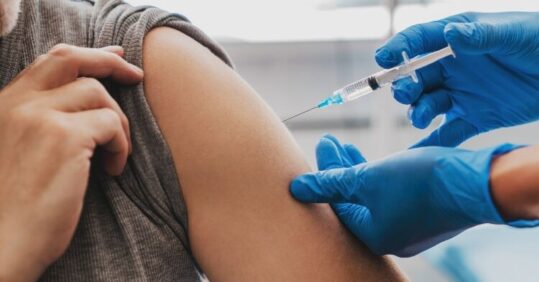Blood analysis may indicate how effective a vaccine will be for individual patients

Researchers at the University of Cambridge have discovered a signature in the blood related to immunity that could predict how well people will respond to vaccines.
Having a greater number of the particular immune cells that increase as we age is likely to indicate a poorer response to vaccines.
The findings are published in Nature Communications and may help explain why some individuals respond better to vaccines than others.
Related Article: Advice on Guillain-Barré risk for adult RSV vaccine updated by MHRA
During the Covid-19 pandemic, it became clear that some patients responded better to vaccines than others and were consequently better protected from the virus. Studies have highlighted that the SARS-CoV-2 vaccines are generally less effective in people with weakened immune systems, but this effect is not seen uniformly across the population.
Through vaccination, the immune system is primed to recognise invading pathogens and stimulate the production of antibodies to eliminate the virus or bacteria. The antibodies are produced by immune cells, known as B cells, including ABCs, a type of B cell which increase as we age. People with a weakened immune system also accumulate ABCs faster than people with a normally-acting immune system.
The researchers looked at the proportion of ABCs and healthy B cells in different groups of vulnerable patients to determine who was most at risk from infection even after vaccination. One group of patients had a weakened immune system due to an inherited condition, whilst the other resulted from taking immunotherapy drugs for cancer treatment. The findings from both groups were compared to the B cell measurements from healthy individuals.
Using a technique known as single-cell RNA sequencing, the researchers were able to examine the activity of the cells and test how variations in immune cells influence the body’s ability to neutralise the Covid-19 virus after vaccination.
They found that people with fewer ABCs are likely to respond better to vaccines, which could explain the variability in responses to the Covid-19 vaccine across different patient groups.
Related Article: Parents need repeat contact and more time with practice nurses on childhood jabs
Dr Juan Carlos Yam-Puc, from the Medical Research Council (MRC) Toxicology Unit at the University of Cambridge, said: ‘What we found, much to our surprise, was that the age-associated B cells in these very different groups looked the same. The key difference was in the amount of these cells – the greater the proportion of ABCs in an individual’s blood, the less effective that individual was post-vaccination at neutralising the virus.’
The researchers believe the principle could be applied to other vaccines, such as the annual influenza vaccine.
Dr Pehuén Pereyra Gerber, also from the University of Cambridge, added: ‘Looking at blood levels of ABCs could tell us that person A should respond well to a vaccine, while person B might need a stronger vaccine or to be prioritised to receive a booster.’
Related Article: NHSE confirms dates and eligibility for autumn Covid and flu jabs
The researchers believe that the research could lead to the development of a clinical test to predict vaccine efficacy for immunodeficient patients and the population more generally.

See how our symptom tool can help you make better sense of patient presentations
Click here to search a symptom




